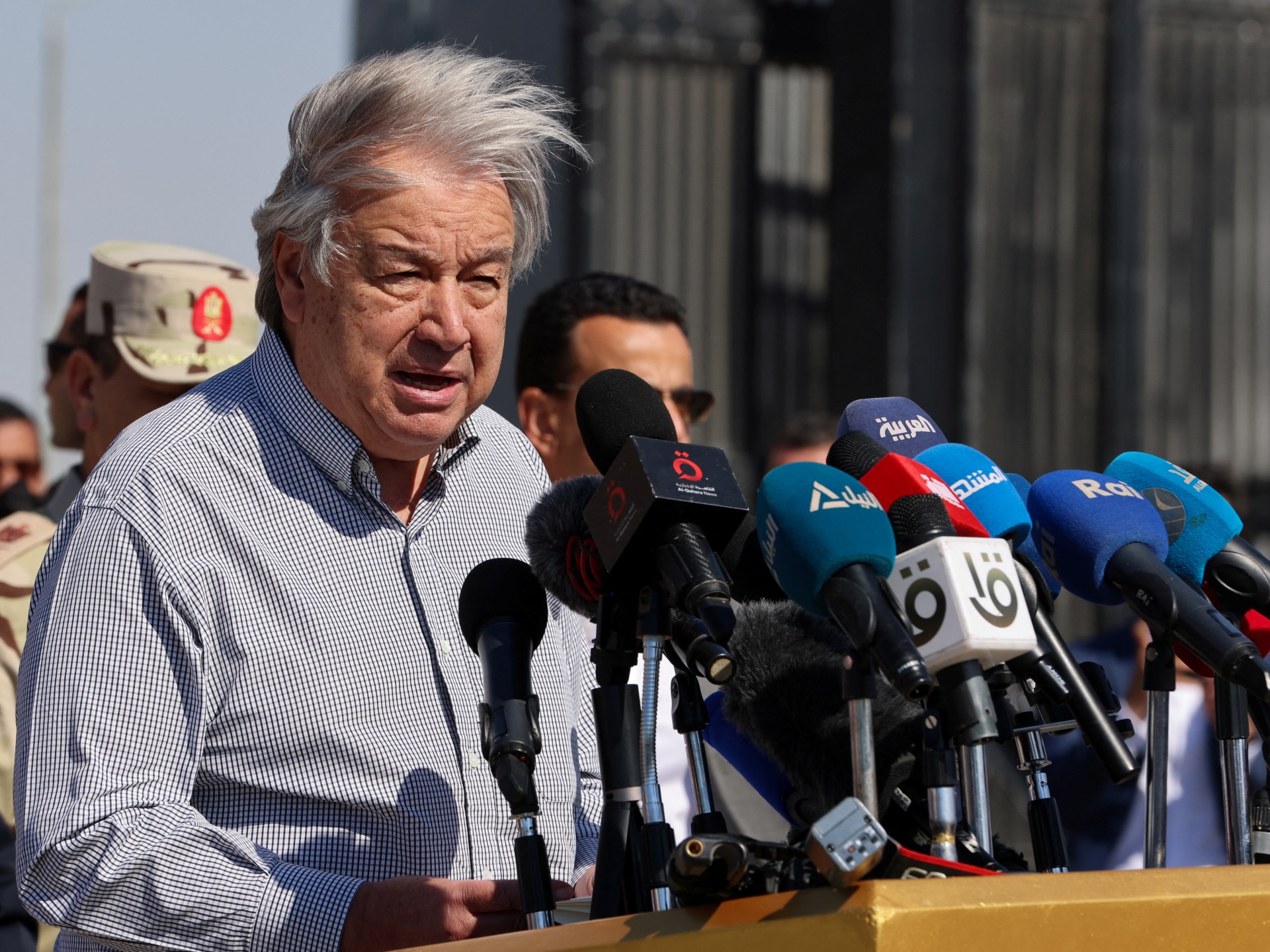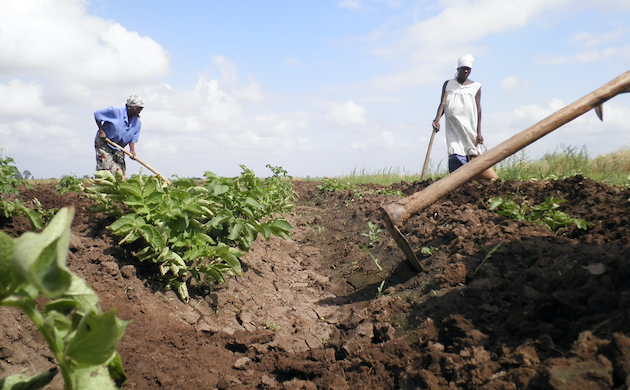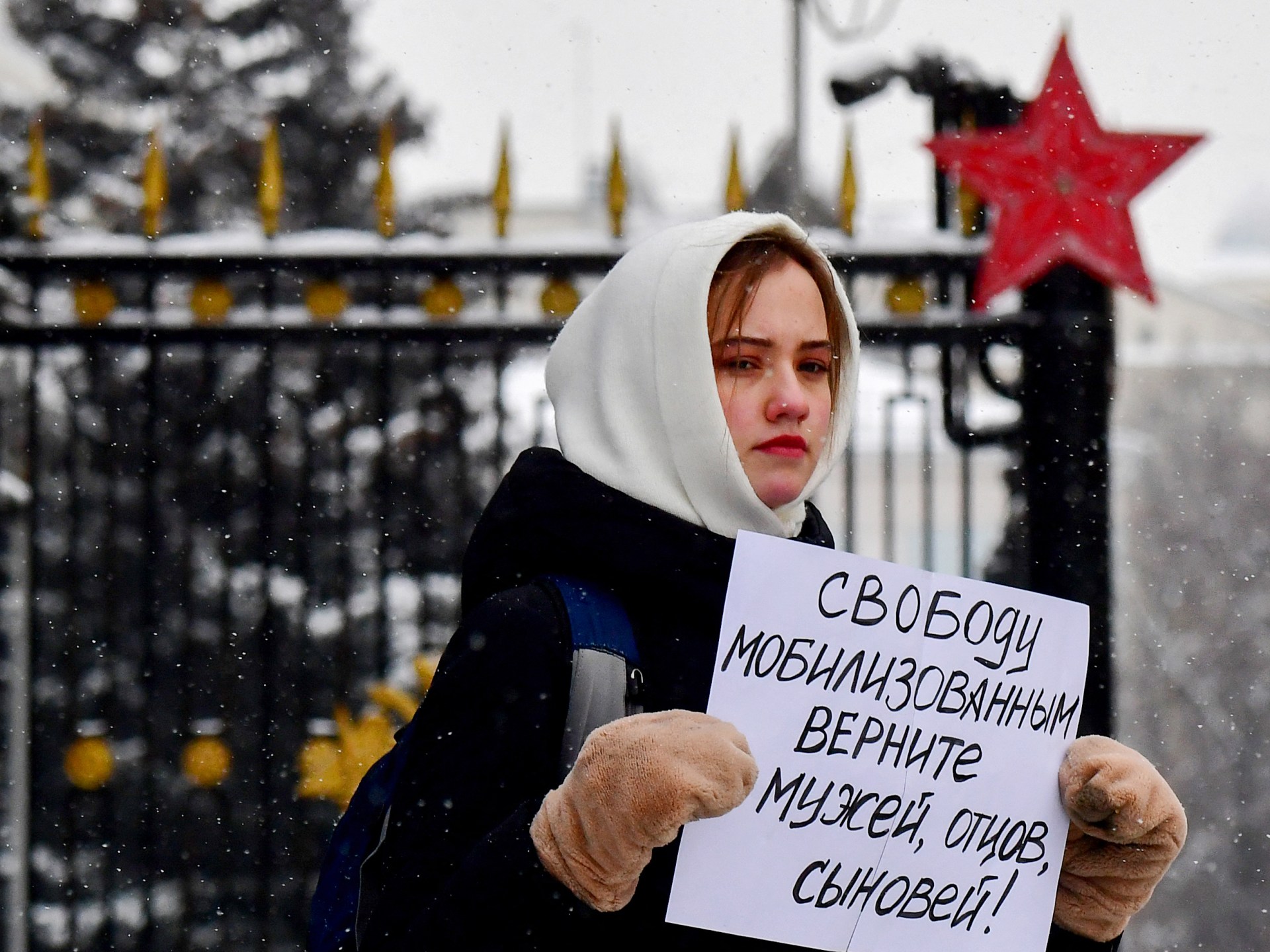Israel’s Gaza offensive ignites global protest calling for ceasefire
By Sunday morning, it seemed that connectivity had been somewhat restored, though the miserable toll of the ongoing war grew larger. The Health Ministry in Gaza, which is controlled by Hamas but has been a reliable source of data on casualties in the past, said 8,005 people had been killed so far, including 3,324 children. More than 20,000 people have been injured. A paltry flow of humanitarian aid has trickled into Gaza, which the Palestinian Red Crescent said only meets 3 percent of the requirements of the territory’s beleaguered, failing medical sector.
The horrific Oct. 7 attack orchestrated by Hamas on villages and kibbutzim in southern Israel killed at least 1,400 people and led to the abduction of about 230 hostages. Their fate now hangs in the balance after Israeli Prime Minister Benjamin Netanyahu announced that Israel had entered a new phase of the fighting with an expanded ground assault on Gaza. He invoked the biblical battles of the Israelites thousands of years ago to underscore the mission: “To defeat the murderous enemy, and to ensure our existence in our land.”
For the 2.3 million people living in Gaza, daily life was enough of an ordeal before they had to reckon with the consequences of being shut off from the reach of friends and loved ones elsewhere, as well as connections with international media and relief agencies. Amid constant bombardments and a string of Israeli evacuation warnings, many families in Gaza have been compelled to relocate multiple times in a desperate search for safe sanctuary. Whole residential neighborhoods are now piles of toxic dust and debris. WiFi signals and phone charging stations are scarce commodities.
Abdul Raouf Shaath, a photojournalist in Gaza, managed to transmit a voice message to my colleagues, expressing his fears that the enclave was “now being annihilated from the eyes of the world” and “removed from the noise of the world.”
But a lot of noise was made on Gaza’s behalf before and during the weekend. Across the world, protesters calling for a cease-fire have taken to the streets in huge numbers. The aggregate figure of participants for all the demonstrations is hard to gauge, but it could well be in the millions.
Demonstrators marched across the Thames and through the heart of London, past the coliseum in Rome, and in defiance of bans on pro-Palestinian gatherings in Paris. In Beirut, Baghdad and Cairo, huge crowds descended on the main thoroughfares of these Arab capitals. They chanted slogans outside the U.S. Embassy in Kuala Lumpur, Malaysia, and burned U.S. and Israeli flags in Karachi, Pakistan. Pro-Palestinian protesters gathered outside parliament buildings from Oslo to Wellington, New Zealand’s capital.
The weekend’s rallies varied in tone and message. Turkish President Recep Tayyip Erdogan held a massive event in Istanbul on Saturday, with hundreds of thousands waving both Palestinian and Turkish flags. He reiterated remarks that have cratered Israeli-Turkish relations, branding Israel “an occupier” and insisting that Hamas was “not a terrorist organization” — never mind the grisly carnage its militants unleashed three weekends ago.
In the southern Indian state of Kerala, former Hamas leader Khaled Meshal beamed virtually into an event hosted by a radical, largely Muslim organization, linking the struggles against right-wing Hindu nationalism and “apartheid Zionism.” A separate, more mainstream pro-Palestinian rally in the city of Kozhikode attracted a crowd of roughly 100,000 people.
In the West, political leaders and commentators have watched with concern the growing prevalence of antisemitic slogans and rhetoric at some demonstrations, bristling at the perceived reluctance of activists, especially on university campuses, to denounce Hamas for its evident war crimes and atrocities. In Europe, some governments have moved to either ban outright pro-Palestinian protests or censor imagery linked to the Palestinian cause, including the Palestinian flag. But the overwhelming message from the major demonstrations has been centered on the plight of Palestinian civilians in Gaza.
“The superpowers at play are not doing enough at the moment. This is why we’re here: We’re calling for a cease-fire, calling for Palestinian rights, the right to exist, to live, human rights, all our rights,” London protester Camille Revuelta told Reuters. “This is not about Hamas. This is about protecting Palestinian lives.”
In New York City on Saturday, thousands of protesters filled the Brooklyn Bridge, chanting, “Free Palestine.” A day earlier, in perhaps the most eye-catching action that has taken place in a major Western city, a protest organized by Jewish Voice for Peace, a left-leaning Jewish American organization, took over the main concourse of Manhattan’s iconic Grand Central Terminal. Protesters wore black shirts with slogans that read, “Not in our name” and called for a cease-fire and the protection of Palestinian lives. Police detained dozens of protesters for blocking access to the station.
“This has to stop,” Steve Auerbach, a New York pediatrician who attended the protest, told the New York Times. “Calling for a cease-fire should be considered a mainstream, normative position.”
In besieged Gaza, such gestures are welcome. “We are in dire need of hope right now,” wrote Nowar Diab, a student in Gaza City who published an op-ed Saturday in Britain’s Guardian newspaper. “The situation is so difficult and we need a portion of hope every day. This is what your support gives us: enough hope to get through the long, painful and difficult day that will come tomorrow.”
Check out our Latest News and Follow us at Facebook
Original Source







